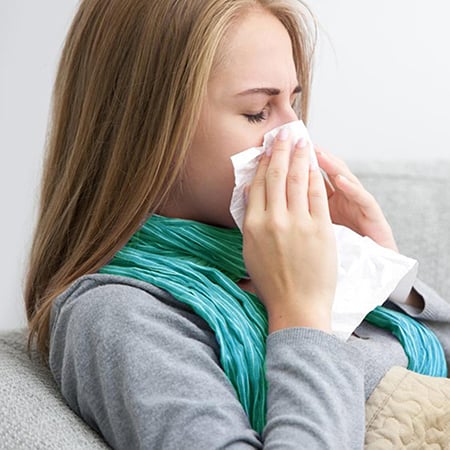Everything you need to know, put simply.
The Centers for Disease Control and Prevention (CDC) explain that in general, the flu is worse than the common cold with symptoms such as a fever, body aches, extreme tiredness, chills and a dry cough. Colds however are much milder and you can expect a runny or stuffy nose.
The flu vaccination offers effective protection against influenza. The Department of Health (Australian Government) has issued the National Immunisation Program 2016 seasonal flu shot, which is available now from GP surgeries, pharmacists and other immunisation providers. This is the first year that government has moved to a quadrivalent vaccine and is part of their effort to provide the greatest amount of protection for those at risk during the flu season.
What should you do if you get sick?
In most cases, the CDC say to stay home and avoid contact with other people except to seek medical care. It is recommended you stay home for at least 24 hours after your fever is gone as you are at high risk of spreading it to others. If you are in the high risk group or are very sick and worried about your illness, there are ‘antivirals’ the doctor can prescribe you.


